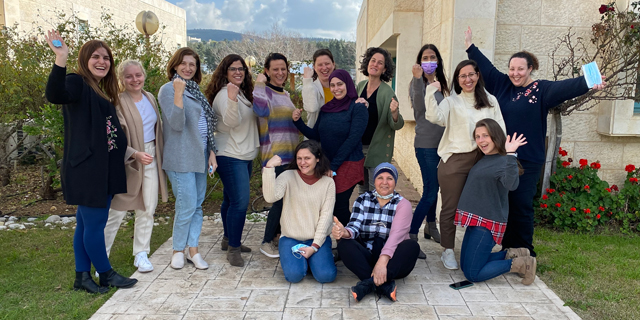

Spotlight
NanoScent develops device to detect Covid-19
The Israeli medical device startup’s sensor is capable of detecting a variety of diseases through scent, including coronavirus
Yafit Ovadia | 08:16, 08.11.21
Company: NanoScent
Product: NanoScent device
Raised: $20 in Series A, Grant
Founded: 2017
Founders: Oren Gavriely (CEO), Eran Rom (CTO)
Headquarters: Misgav, Lower Galilee
What if a machine could analyze a person’s breath, and detect whether or not they have contracted Covid-19 (coronavirus)? Israeli medical device startup, NanoScent Ltd has devised exactly that type of solution. A person simply breathes into a machine, their breath is collected into an airbag, and sensors inside the device are equipped with smart algorithms that are able to show an indication - based on molecules inherent in a person’s breath - whether or not a person has contracted the virus. NanoScent was originally founded in 2017, by CEO Oren Gavriely and CTO Eran Rom, to show indications for other diseases, such as cancers or other health predicaments. “We want NanoScent to function with that same level of precision that dog noses cannot detect,” said Gavriely, who has a background in medicine, while his co-founder Rom, is a former software engineer.
Using scent to sniff out diseases
The NanoScent device is equipped with a miniature sensor, whose machine learning-scent recognition technology analyzes volatile organic compounds (VOC). The sensor is located inside a box, with an interface featuring a touch screen, and collects a person’s breath with a small bag. The machine then analyzes the air and provides an output, explained Gavriely.
“Different diseases can be detected by smell, in the same way that some people who suffer from epilepsy use dogs who can ‘smell’ or predict a seizure,” Gavriely said. “Similarly to when cheese goes bad, there’s different activities going on within the organism that can create a unique odor pattern, but serve as an early indicator. NanoScent wants to capture this odor by using a very scalable solution to help provide early indications for different diseases.”
Read More
“No one was even talking about how to resolve Covid back then,” Gavriely said, “so we jumped on that bandwagon.” Now, the company is working on gaining regulatory approval from the FDA, and is also working with European bodies. “We’re creating the new standard of breath detection,” he concluded.

